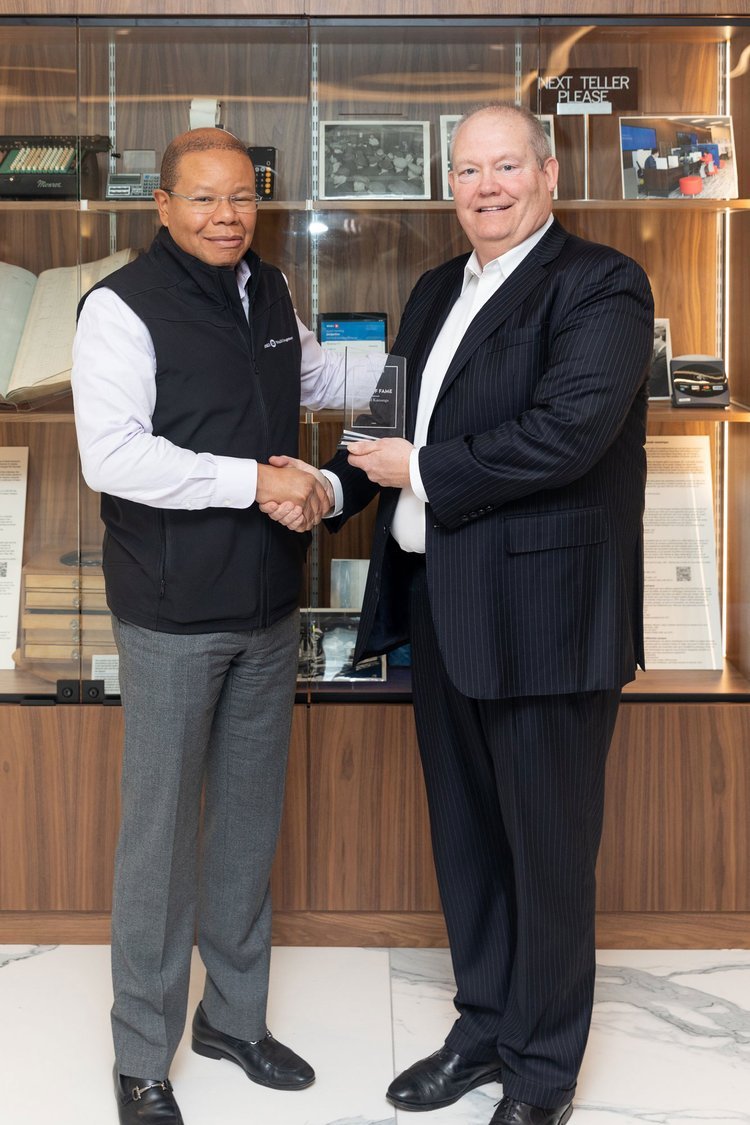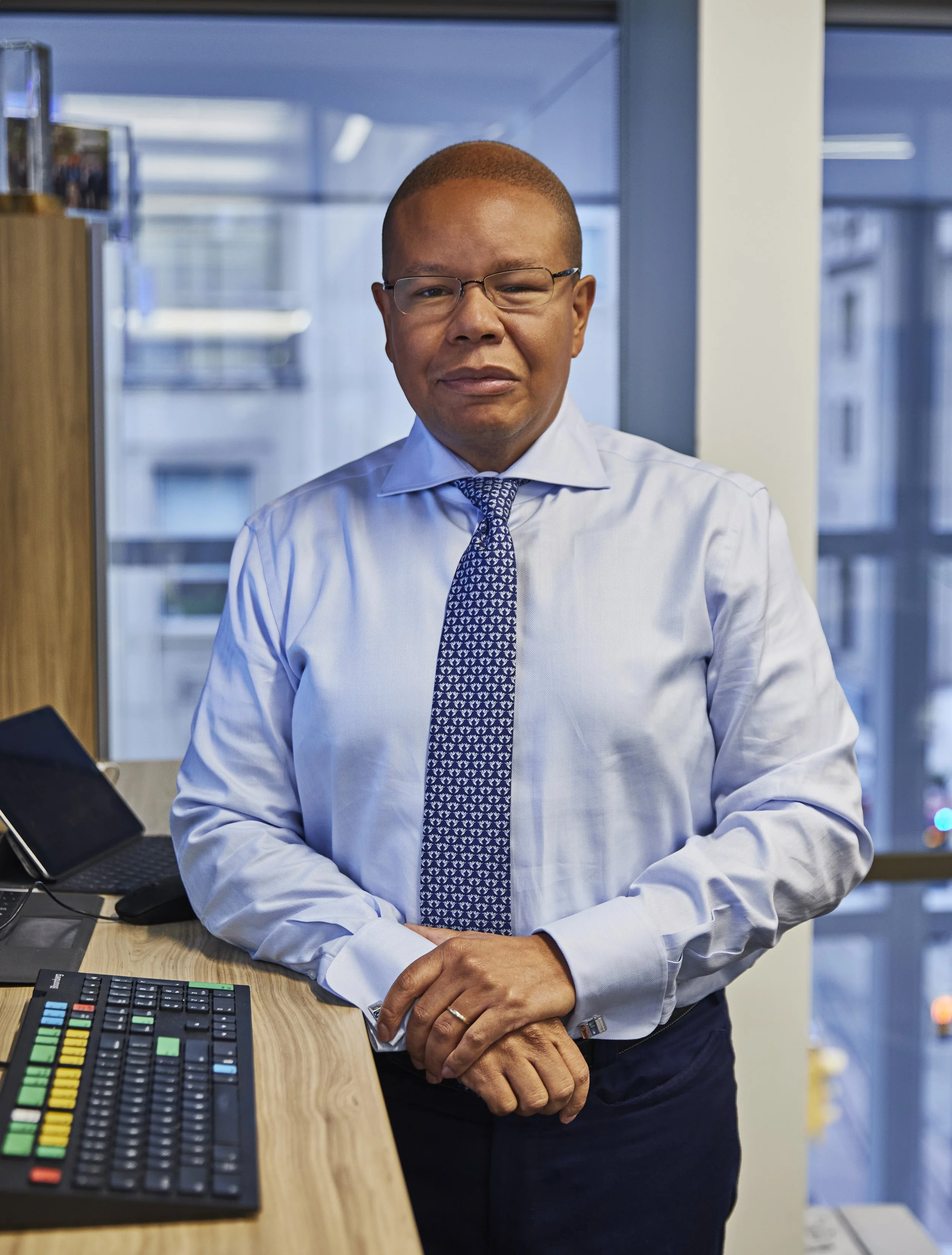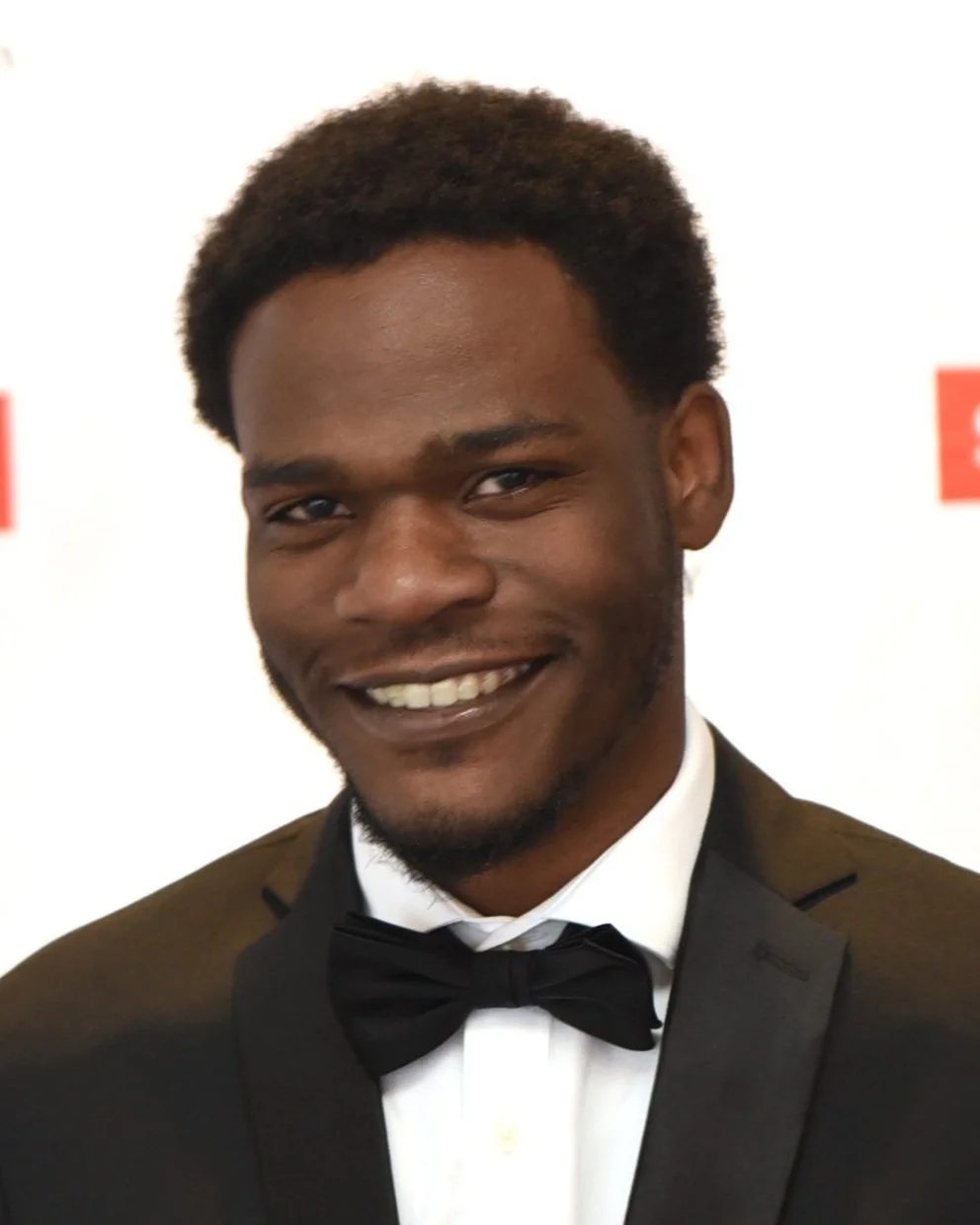Deland Kamanga is an advocate for inclusivity in the banking sector
April 4, 2024
Far too many bright and gifted young people seeking higher education are denied the basic right because their parents cannot afford tuition costs.
In the 1960s in apartheid South Africa, schools created specifically for Blacks designed curricula to prepare students for menial jobs.
Derrick Kamanga, who passed away in 2011, was very fortunate.
Born in Barberton which is the South African town where gold mining began, he attended secondary school in Malawi and received a scholarship to pursue higher education in Canada.
“If someone had not given my father that scholarship, he would not have had the opportunity and I would not have had the opportunity to be where I am today,” said Deland Kamanga who is BMO Wealth Management Group Head. “It does not just help that one person. It helps multiple generations. When I look at my two daughters, they would not have the education and opportunities they have if someone had not given their paternal grandfather a scholarship nearly 60 years ago.”
On April 20, Kamanga will receive a Vice-Chancellor Award at the University of the West Indies (UWI) Toronto Gala.
In the last 15 years, the nearly $3 million raised has funded scholarships for over 700 students.
Of all the accolades Kamanga has received, this one stands out.
“Opening doors for higher education and offering young people the chance to succeed are priorities for me,” he noted. “This prestigious honour is coming from an organization providing thousands of dollars in scholarships to students in the Caribbean.”
Education was an important part of life in the Kamanga’s home.
The family patriarch insisted his two sons hit the books instead of kicking a soccer ball or dribbling a basketball.
“Dad wanted us to stay in school and focus on education,” Kamanga, who is on the SickKids Board of Trustees and SickKids Foundation, said. “He knew that was his way out and saw that as our way out. He also wanted us to have a business. He did not like it when my brother and I ended up in the banking industry.”
Thinking that real estate would be a profitable business to pursue after completing an Economics degree at Western University, he changed course in his final year after stumbling on the New York Times bestseller, ‘Barbarians at the Gate’ which centers on RJR Nabisco Chief Executive Officer F. Ross Johnson plans to buy out of the rest of the company’s shareholders.
“I thought this was like real estate, but for companies,” said Kamanga who is a Chartered Financial Analyst. “As I delved more into the finance business, I became interested in this sector. From a young age, I was interested in the stock market, but I thought you need a lot more money to invest in the market. In real estate, it is known that you could invest a little bit and have a lot of debt. That is what I saw with this private equity business and it made me learn more about finance. After graduating, I said I would start there and once I got $100,000, I would leave and start a business. Here we are 33 years later and I am still working for someone else.”
Getting a job in the financial sector was not easy for the new graduate.
With his resume failing to generate interviews, Kamanga felt his name was a barrier.
Mike McPhillips, who has been with BMO Nesbitt Burns since 1983, gave him his first job.
“He took a chance on me and even after he hired me, one of his managers was not comfortable with the hire and wanted to demote me to see how I would do,” recounted Kamanga. “Mike stood his ground, fought his boss and said let’s give this guy a chance. Having someone who doesn’t know you vouch for you made all the difference in my career.”
Starting in 1991 at BMO Nesbitt which was the predecessor to BMO Capital Markets, he moved on two years later to CIBC Bond Desk where he spent a decade, including a year in New York, setting up their cross-asset derivatives operation.
Back in Toronto to join his wife who was admitted to the Ontario Bar and a young daughter, Kamanga worked in RBC Fixed Income Derivatives section before returning to BMO in 2006 to run their cross-asset derivatives business.
Married for 28 years, Nicole Stewart Kamanga is the great-grandniece of Vincentian-born Hugh Mulzac who was the first Black man to obtain a Shipmaster’s unlimited license and the first Black Merchant Marine Ship Commander in 1942 when he skippered the SS Booker T. Washington with an integrated crew of 18 nationalities.
The second time around with BMO, Kamanga has found joy and happiness.
“We have a very collegial culture here that wants to be a great bank as well,” noted the 2022 Structured Product Industry Hall of Fame inductee. “We want to work together as a team and be number one. In addition, this place cares about the client. Once we do that, the bank will be taken care of long-term. Having seen the cultures of other banks, I thought this would be the place to be.”
Joe Burris, Head of Americas, presented the Structured Product Industry Award to Deland Kamanga (Photo contributed)
On the way up the corporate ladder, Colleen Moorehead, Laura Ross and Wendy Smith then at CIBC and Ray Williams, who co-founded the Black Opportunity Fund, offered a helping hand.
“Colleen and Laura gave me a chance on the trading floor,” said Kamanga who is a Women in Capital Markets Board member. “Wendy was in charge when electronic trading started in the early 1990s and she allowed me to trade risk. Ray was one of the few Blacks on the trading floor who did not have to help anyone. Though well established, he went out of his way to help people he thought deserved that opportunity. If there is one person from our community on whose shoulders many of us on the trading floors on Bay St. stand, it is Ray.”
While in Malawi, he developed a strong passion for numbers after a conversation with his father.
“When I asked dad when he decided what he would specialize in, he told me he couldn’t learn German, French or Spanish while in high school,” Kamanga, who was recognized with the Catalyst Honours Business Leader Champion Award in 2021 for his work in accelerating progress for women through workplace inclusion, pointed out. “He said he would learn English because that was the language the teachers were using and Math because that is a language that is spoken across the world. He inculcated in us that Math was another language to embrace.”
Like his father who advocated for inclusivity, the former BMO Head of Global Markets is doing the same in his workplace.
Kamanga encourages senior leaders to be inclusion and diversity promoters and inspires employees to live these values. He has played a key role in enhancing programs and policies that nurture an inclusive culture, including returnships, parental leaves and hiring procedures that directly affect women.
This has resulted in an increased presence of women at all levels in Global Markets and more women with the potential to advance to senior roles across the bank.
Women hold over 42 percent of senior leadership roles and half of the independent directors on BMO’s Board of Directors are women.
For the fourth straight year, BMO was recognized in The Globe & Mail Report on Business magazine’s ‘Women Lead Here’ list which is an annual benchmark of Canadian businesses with the highest achievement in executive gender diversity.
When Darryl White became BMO’s Chief Operating Officer in 2016, the bank’s Black Professional Network (BPN) in Canada had about 30 members.
After White indicated it would be the first employee resource group he would certify in his new role, membership soared to about 300 at the official launch. The BPN now comprises over 1,000 members.
“We have seen a lot of growth with people getting a voice at the table,” said Kamanga who founded the BPN Canada as an Executive Sponsor. “In the last few years, we went from zero Blacks on the Executive Committee to two (Kamanga and Darrel Hackett who is BMO Financial Corporation Chief Executive Officer).”
As an Executive Committee member, he leads BMO Wealth Management’s strategic direction, including Private Wealth Canada (BMO Nesbitt Burns and Private Banking, United States Wealth Management, BMO Global Asset Management, BMO InvestorLine and BMO Insurance.
Born in Ottawa where his father was pursuing a Civil Engineering degree at the University of Ottawa, Kamanga spent seven years in Malawi when his dad returned in 1971 to work as an Engineer at the Blantyre Water Board.
Moving back to Ottawa six years later with his family was a culture shock for Kamanga.
“I saw what it was like to live very well when I was in Africa,” the Jackie Robinson Foundation member said. “At the time, I didn’t understand why my life was good and others were not. When I came back to Ottawa, we lived in subsidized housing on Saint Laurent Boulevard and I quickly realized we are a minority family. I have seen both sides, but I feel I have been fortunate because I had my parents’ support.”
Derrick Kamanga started an engineering company in 1983 and provided services to First Nation communities in Canada before his sudden death at age 68.
“While my dad was very accomplished, he had a lot of empathy for people and advocated forgiveness,” said his son who co-chairs the BMO Employee Giving Campaign. “We didn’t realize the magnitude of what he had done until he passed away. Many First Nation people attended his funeral because he did so much for that community in Canada. He never told us a lot about what he did.”
The professional engineer represented the Chiefs of Ontario, a coordinating body for First Nation communities in Ontario that was set up to make representation to Canada’s political leaders on issues affecting First Nation people.
To memorialize his legacy, the Ontario First Nations Technical Services Corporation, with which he was a Quality Assurance Engineer providing water and wastewater systems advice to First Nations communities, established an award in his name that is presented to a First Nations student studying engineering in those fields.
Deland Kamanga will dedicate the Vice-Chancellor Award to his mother (Photo contributed)
When Kamanga steps up to receive his UWI Vice-Chancellor Award, he will be thinking of his parents.
He plans to dedicate the award to his mom who will attend the event.
“If my father was alive, I would have dedicated it to both of them,” said Kamanga who enjoys reading non-fiction and travelling. “As much as my dad was larger than life and he was someone I looked up to and emulated, my mother helped my brother and I get through life. She could not understand why we could not get a scholarship so she secretly sent us money to get through university. She sacrificed the most for our success.”
Nancy Kamanga, 82, worked in Pfizer’s Human Resources department for many years before retiring and becoming a Tax Preparer and Real Estate agent. She is a descendant of escaped slaves from Virginia who arrived in Nova Scotia in 1785.








